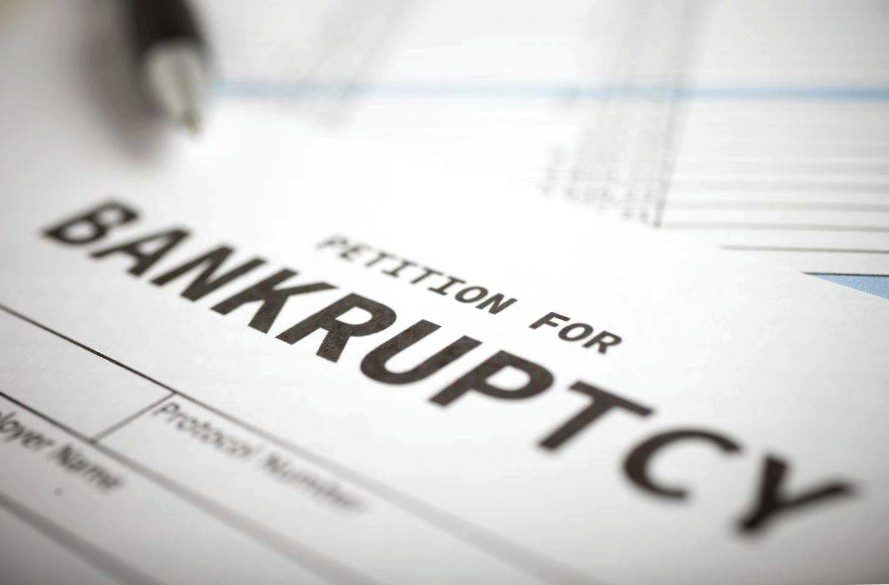How long does chapter 7 stay on your credit?
If you have ever taken out a loan, you are familiar with the term "Chapter 7". This is a type of private bankruptcy that is used in the U.S. This article looks at how long Chapter 7 can remain on your credit, and why it’s so important to understand this when seeking financing.
There can be many reasons why you may need to file a personal bankruptcy through Chapter 7. But in order for you to recover financially, you need to know how long Chapter 7 will stay on your credit and how it will affect your future finances. Insiders also call this "credit repair".
In this article, you’ll learn how long Chapter 7 can stay on your credit, what it can mean for your credit, your credit reports, and even your job opportunities. We also give you tips on how to pursue a successful credit repair and rebuild your credit score.
So read on to learn everything you need to know about Chapter 7 and how it affects your credit.
What is Chapter 7 and how long will it stay on your credit?
Chapter 7 is a chapter in U.S. bankruptcy law, also known as a liquidation proceeding. It is a process in which a bankruptcy trustee is appointed to liquidate the debtor’s assets to pay debts owed to creditors.
If you file for Chapter 7, you can get rid of your debts that are not covered by collateral. However, it is important to note that not all debts are covered, for example, there are debts that are not covered, such as student loans and certain taxes.

Typically, Chapter 7 stays on your credit report for about ten years. Even though Chapter 7 can be removed from your credit report after this time, it can still have an impact on your credit score. Creditors will judge your credit score based on whether or not you have filed for Chapter 7.

To improve your credit score, it is important to open new lines of credit and make regular payments. Here’s how to build your trust with creditors and improve your credit score, even if Chapter 7 has been on your credit report in the past.
Why Chapter 7 is important on your credit?
Have you heard of Chapter 7 bankruptcy before? If so, then you know it’s a way to get rid of your debt without having to pay it back. Of course, this option also has an impact on your credit. But why is Chapter 7 so important on your credit?
The main reason is that Chapter 7 bankruptcy can remain on your credit report for up to ten years. This means that any potential lender or creditor who checks your credit will see this bankruptcy. And it may cause you to have trouble getting loans or credit cards in the future, or getting them at a higher interest rate.
You may wonder why Chapter 7 bankruptcy stays on your credit report for so long. The reason for this is that it is considered one of the most serious types of bankruptcy. It means that you will have to sell your assets to pay off your debts, and your credit score will be severely affected. Therefore, it is an important indication to banks and lenders that you have had financial difficulties in the past.
- But what happens if you file Chapter 7 bankruptcy and have your credit reviewed after ten years?
In this case, it will likely no longer have an effect on your credit score because it will be deleted from your report. However, that doesn’t mean it’s gone forever. Potential employers, landlords or insurance companies may still have access to your old credit reports, and it may also impact the interest rates you pay on insurance or rentals. So it’s still important to keep an eye on your financial situation to avoid future trouble.

How long chapter 7 will stay on your credit (and why)?
Chapter 7 is the section of U.S. federal law that allows people to discharge debts and improve their financial situation by selling their assets and paying the proceeds to their creditors. However, it is important to note that the effect of Chapter 7 on your credit score does not disappear immediately.
Typically, Chapter 7 stays on your credit report for 10 years, which means it remains visible to lenders when they evaluate your credit score. Nevertheless, you can begin the process of rebuilding your credit once your Chapter 7 case is closed.
When rebuilding your credit, it is important to pay your bills on time and keep your credit reasonable. By managing credit and debt responsibly, you can improve your credit score over time and apply for new loans and lines of credit.
It is important to note, however, that despite your efforts to improve your credit score, Chapter 7 remains on your credit report and is visible to potential creditors. However, it is also possible to find potential lenders willing to extend credit to individuals with a history of Chapter 7 if they have other positive characteristics that confirm their creditworthiness.
How long Chapter 7 will remain on your credit (and why)?
Chapter 7 of a credit is a type of bankruptcy procedure that people or businesses can use to get rid of their debts. Chapter 7 usually lasts about three to six months, after which the debt is mostly paid off or forgiven.
Unfortunately, Chapter 7 can remain on your credit report for a long time, negatively impacting your credit score. Typically, Chapter 7 stays on your credit report for about ten years, which may cause you to have difficulty obtaining credit or loans in the future.
However, there are steps you can take to remove Chapter 7 from your credit report. For example, you can hire a credit repair agency to help you remove Chapter 7. You can also try to negotiate with creditors and have the entry on your credit report removed.
- Negotiate with creditors to reach an agreement that removes Chapter 7.
- Work with a credit repair agency to remove Chapter 7 from your credit report.
- Get professional help from an attorney to guide you through the process of Chapter 7 removal.
It is important to understand that Chapter 7 remains on your credit report because it is a part of your credit history. However, you can take steps to change this and improve your credit score by paying off your debts and paying your bills on time.